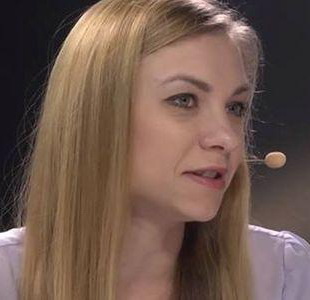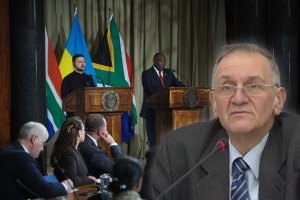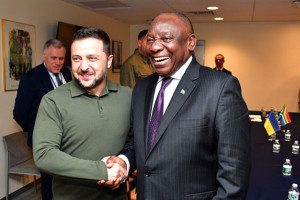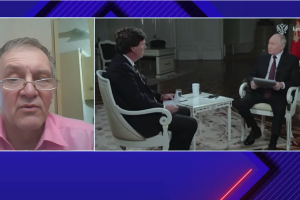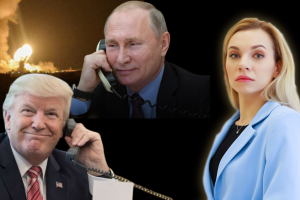Visa-free regime: long saga with a successful finale
Maria Zolkina political analyst, Democratic Initiatives Foundation | On May 12, an extremely important phase of the relations between Ukraine and the European Union de fact came to its logical end. Indeed, the Agriculture and Fisheries Council of the Council of Europe approved the corresponding decision, thus taking the last step in the bureaucratic procedure of agreement to the introduction of the visa-free regime for Ukraine. Although the decision is to take effect approximately starting from June 11, 2017), the result will not change the overall picture: the era of the visa-free regime successfully came to its end. |
In connection with this it would be worth emphasizing two principle aspects. The first is the informational component of this decision. Unfortunately, Ukrainians are not likely to feel the “sweet taste of victory” to the fullest extent. At least, this major event will not be some informational bomb or a reason to feel “some semblance of a holiday”. There are several reasons for this, but all of them are united by two harsh facts of reality: namely, the implementation of visa liberalization was far too long-winded and turbulent. The broad masses are sick and tired of speculations around this issue. A full series of “false starts” with the introduction of the visa-free regime played a major role in this process. Indeed, over the past two and a half years the public announcements by the Ukrainian leadership on more than one occasion of the highly unrealistic terms for the introduction of the visa-free regime were absolutely groundless. If this was done to “stir up” the public, then in the end such announcements completely backfired and had the opposite effect: trust in the statements about a visa-free regime consistently decreased with every such unrealized term. If the aim of such statements was to stimulate the EU to take more decisive action and speed up the process, then this also did not likely help: from the autumn of 2016 the EU put the brakes on this process and even exceptionally for internal political reasons. Be that as it may, but a fact remains a fact: in this particular case such undertones somewhat “muted” the thrill of victory, especially if to take into account the reaction of the broad public. Nevertheless, this informational component is short-term in its essence, while in the long run the importance of “immersing” Ukrainians in European realities through the open-door policy does not need any excessive substantiation.
The second aspect is the political component and pre-history of the final decision. Indeed, over the past half year Ukraine put up a true fight in order that the EU play by its own procedures and rules, rather than for the sake of political expediency. Herewith, while earlier the Ukrainian side was mostly accused of making politically motivated decisions, then over the latest period such reproaches addressed to the EU were absolutely justifiable.
From the autumn of 2016 there were simply no formal grounds to not put into effect the final agreement on the introduction of the visa-free regime for Ukraine. In fact, there were political reasons associated with the problems of the EU itself (migration challenges) and (what’s worse) problems with certain EU member countries (for example, in light of the presidential elections in France). For this reason, the quite effective agreement on the renewed mechanism of suspending the effect of the visa-free regime (to which the Ukrainian and Georgian issue was unjustifiably “bound” to, as well as the refusal from political arguments to drag out the process, were the main challenges and the last obstacles to pulling down the visa barriers between Ukraine and the EU.
The fact that the Council of Agriculture and Fisheries of the EC, which is not a profile or specialized council in this given case, put the final notch in the formal procedures is also quite symbolic. Moreover, the expectations at the meeting of the specialized Justice and Home Affairs Council would have postponed the process for even longer.
Nonetheless, the completion of the visa-free saga with all of its obstacles is undeniable success of the modern Ukrainian state and civil society. So far, the plan of action of visa liberalization, which is probably the most successful instrument in the transformation of the powers of the EU, was applied for the last time to Ukraine. At the same time, in connection with the new rules of suspending the effect of the visa-free regime the “novices” in this club will not even be given a chance to relax.
Basically, the EU on the whole and certain EU member countries “will make sure” that those reforms that were implemented within the framework of visa liberalization and which gave grounds to agree to the visa-free regime for a specific country are not folded. The most vulnerable for Ukraine in this context remains anti-corruption reform, in particular the counteracting of evident attempts to limit the powers of newly formed bodies or blocking their work. It is exactly the pressure from the EU supplemented by the internal pressure of civil society that to a great extent determined the success of structures of the ruling power in implementing the plan of action for visa liberalization. For this reason, additional “control” from the outside under the auspices of compliance with the conditions of a visa-free regime could in some way turn out to be beneficial.
The truth be told, there remain many challenges to Ukrainian citizens taking advantage of the visa-regime. And if in the foreseeable future the government of Ukraine and political experts make efforts to inform their own citizens about the rules of using the visa-free regime, then Ukraine will not have any influence on the temptation for certain EU members to make the “Ukrainian issue” a hostage to political infighting. This is why Ukraine is faced with the tasks of both a technical national nature (i.e. preserving all reforms and informing its citizens of them) and those at the foreign policy level (namely, to prevent any kind of manipulations such as those used in the referendum in The Netherlands regarding the Association Agreement).

